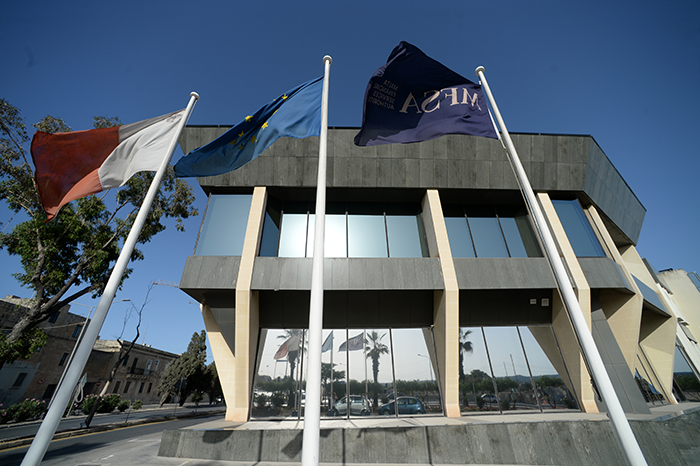Growing international condemnation of Israel’s ongoing attacks on the Gaza Strip is having a direct impact on Israeli firms’ expenditure, with marketing costs more than doubling over the last two years.
Confidential internal data from Meta obtained by investigative outlet Drop Site News has revealed a staggering drop in the effectiveness of advertising by Israeli companies across its platforms.
The data paints a troubling picture for Israeli brands seeking to engage global consumers. Between 2023 and 2025, the cost-per-click (CPC) – a key advertising metric – for Israeli companies surged by 155.3 per cent, rising from $0.094 to $0.24. This figure reflects how much a company must pay to get a user to click on its advertisement and visit its website.
This escalation is far outpacing global trends. In fact, Israel recorded the sharpest rise in CPC of any country between 2023 and 2024. The only other countries with similar increases were Iraq and Pakistan – both with considerably lower advertising volumes.
By contrast, the CPC rate for global companies across major markets remained relatively stable over the same period. For instance, non-Israeli advertisers targeting audiences in the UK saw a CPC rise of just 9.7 per cent, compared to a 163.2 per cent spike for Israeli firms in the same market.
Engagement plunges as spending rises
The report, citing internal whistleblowers at Meta, suggests that Israeli companies spent between $1.8 billion and $1.9 billion annually on advertising through Meta between 2023 and 2025. However, despite these significant outlays, engagement has dropped sharply.
In 2025, total clicks on Israeli ads have dropped to just 39.2 per cent of what they were in 2023, implying that companies are now forced to pay more than double to generate the same level of engagement.
The sharpest increases in CPC were registered in key Western markets, including:
- UK: +163.22 per cent
- Germany: +144.39 per cent
- Australia: +115.87 per cent
- Canada: +106.61 per cent
- France: +102.68 per cent
- US: +93.32 per cent
Even countries such as Brazil, India and Mexico, which previously maintained more neutral stances, recorded marked CPC increases for Israeli brands. By contrast, CPC within Israel rose only 12 per cent, which analysts attribute to a weakening domestic economy rather than reputational factors.
Reputational fallout impacting commerce
The internal Meta data provides rare insight into the mounting economic toll Israel is facing from its deteriorating international image. The findings coincide with a broader shift in public sentiment, particularly among younger demographics.
A Pew Research Center poll from April 2025 found that 53 per cent of Americans now view Israel unfavourably – up 11 percentage points from two years prior. The decline in support is especially pronounced among adults under 50, including younger Republicans.
In parallel, the Global Soft Power Index published by Brand Finance ranked Israel 121st globally – its lowest ever – citing a 42-place fall in reputation due to continued military actions in Gaza.
Top Israeli advertisers and boycott pressure
The data also revealed the top 40 Israeli firms advertising on Meta. These include a mix of gaming studios, IT service providers, e-commerce brands, and digital content agencies. Several of these companies have been subject to international boycott campaigns, including the Boycott, Divestment and Sanctions (BDS) movement.
The report notes that in response to public backlash, many firms attempted to distance themselves from their Israeli identity in advertisements, particularly after the October 7 attacks and subsequent escalation in Gaza. However, the data shows these efforts have been largely ineffective.
In fact, Meta’s revenue from Israeli companies fell by 8 per cent during the 2023–24 period – despite continued increases in ad spending.
Rising diplomacy budgets, falling returns
In response to growing criticism, the Israeli government has dramatically expanded its public diplomacy efforts. In late 2024, it allocated an additional $150 million for hasbara (state-backed public relations), more than 20 times previous spending levels.
Even so, Israel’s global brand continues to deteriorate, with EU and UK officials recently suspending trade negotiations in protest at plans announced by Israeli officials to annex Gaza and forcibly displace its population.
Featured Image:
Tel Aviv
MFSA issues €926,485 in administrative penalties in 2024
Malta’s financial services sector continues to demonstrate resilience
HBO Max arrives in Malta this July
The global streaming service will now be available in 100 markets
Three-quarters of women aged 15-64 are in work – NSO
The labour force grew by 4.3% in the first quarter of 2025, reaching a total of 327,643 individuals






